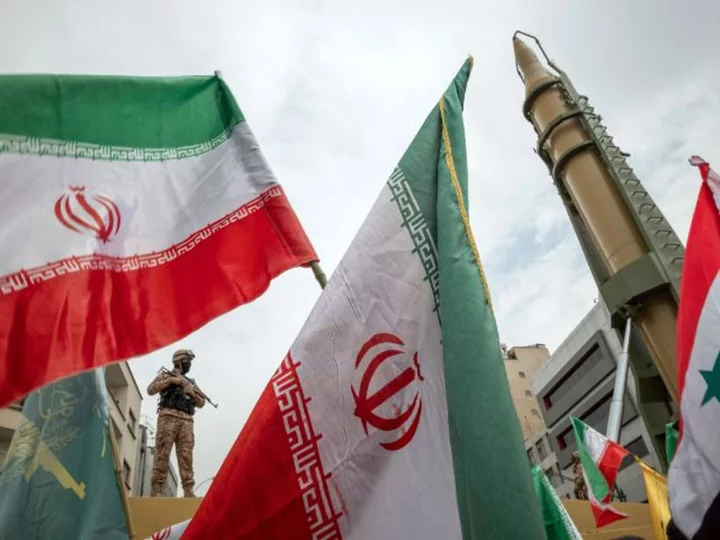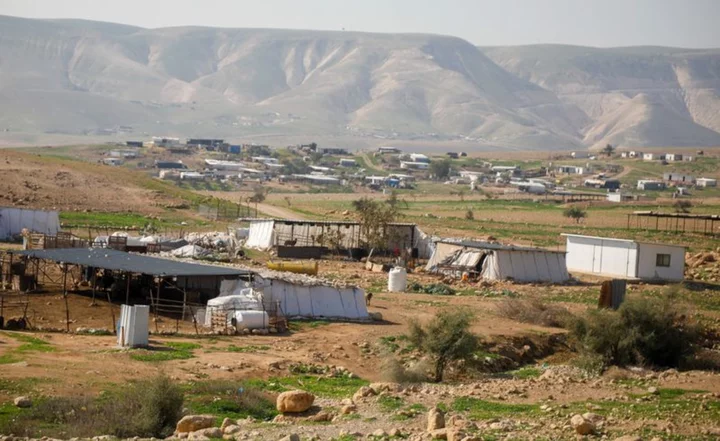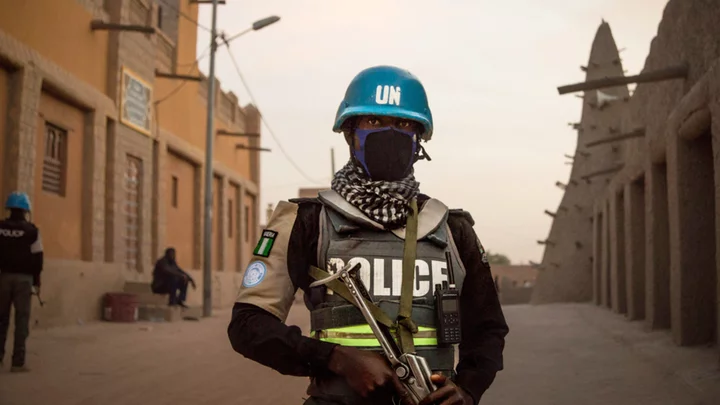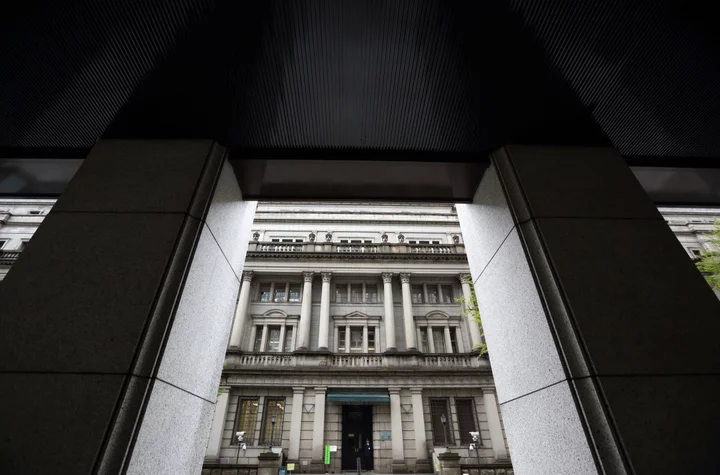The US has intelligence that Iranian-backed militia groups are planning to ramp up attacks against US forces in the Middle East, as Iran seeks to capitalize on the backlash in the region to US support for Israel, according to multiple US officials.
The militia groups have already launched multiple drone attacks on US forces in Iraq and Syria.
But the US now has specific intelligence that those same groups could escalate even further as the war between Israel and Hamas continues.
There are "red lights flashing everywhere," a US official in the region told CNN.
Officials said that at this point, Iran appears to be encouraging the groups rather than explicitly directing them. One official said Iran is providing guidance to the militia groups that they will not be punished -- by not getting resupplied with weaponry, for example -- if they continue to attack US or Israeli targets.
On Monday, National Security Council spokesperson John Kirby said there is "a very direct connection between these groups" and the Iranian Revolutionary Guard Corps, and he said the US is "deeply concerned about the potential of any significant escalation of these attacks in the days ahead."
A senior defense official echoed that concern on Monday.
"We see a prospect for much more significant escalation against US forces and personnel in the near term," the official said. "And let's be clear about it. The road leads back to Iran. Iran funds, arms, equips and trains militias and proxy forces all across the region. ... We are preparing for this escalation, both in terms of defending our forces and being prepared to respond decisively."
Iran supports a number of proxy militia groups in countries across the region through the IRGC-Quds Force, and Tehran does not always exert perfect command and control over these groups. How willing those groups are to act independently is a "persistent intelligence gap," noted one source.
But, Kirby said, "we know that Iran is closely monitoring these events and in some cases, actively facilitating attacks and spurring on others who may want to exploit the conflict for their own good," he said. "Iran's goal is to maintain some plausible deniability here, but we are not going to allow them to do that."
Asked by CNN on Monday whether Iran is directing the groups, State Department spokesperson Matthew Miller said, "Whether they're directing them or they're not, these are militias that they have sponsored and they're responsible for."
A senior State Department official separately told CNN that the US and its partners are "all on the same page that sending a clear message to Iran -- that it should not seek to take advantage of the situation and groups that are under its control or influence should not seek to take advantage of this either," and if Tehran does so, "that could have very escalatory and dire consequences."
"It's not just a US message; it's a shared message," the official said.
Qatar has been a key intermediary between the US and its allies and Iran, multiple officials told CNN.
In the case of the recent drone attacks on bases housing US forces, "Iran is certainly more culpable than in the case of the Hamas attack in Israel," said another person familiar with the intelligence. CNN previously reported that Iranian government officials appeared caught off guard by the Hamas terrorist attack on Israel on October 7.
Iranian proxy forces have attacked bases housing US troops in the past, and the US has responded with airstrikes against the groups' infrastructure, including as recently as March. But another source said that right now, the Iranians' "appetite for expanding [the conflict] is high. Their risk tolerance is high."
The US, meanwhile, is actively bolstering its defenses in light of the heightened threats. The US has around 2,500 troops in Iraq and around 900 in Syria as part of the anti-ISIS coalition, and Secretary of Defense Lloyd Austin said in a statement over the weekend that he was deploying additional air defense systems to the region in response to "recent escalations by Iran and its proxy forces" across the Middle East. Those include a Terminal High Altitude Area Defense missile system and additional Patriot batteries.
Two drones targeting US forces in Syria were shot down on Monday, and troops in Iraq and Syria faced three separate drone attacks last week from suspected Iranian proxy groups, the Pentagon confirmed. Last Thursday, a US Navy warship operating off the coast of Yemen intercepted multiple missiles fired by Iranian-backed Houthi militants that appeared to be heading toward Israel.
In Tehran, there does not appear to be a clear consensus about what approach to take to the war between Israel and Hamas.
"I am sure there are different voices in their system advocating different things," the senior State Department official said.
Another official said that while it is unlikely that Iran would be willing to engage in direct fighting with Israel or the US, directing proxies to attack US assets in the Middle East allows Iran to maintain their influence and reputation while managing escalation risks.
In a news conference with his South African counterpart Naledi Pandor in Tehran on Sunday, Iran's Foreign Minister Hossein Amir-Abdollahian said that the Middle East is like a "powder keg," according to quotes published by state-aligned Tasnim news.
"Any miscalculation in continuing genocide and forced displacement can have serious and bitter consequences, both in the region and for the warmongers," Abdollahian said, referring to the US and Israel.
The Iranian foreign minister also warned the US and Israel that "if crimes against humanity do not stop immediately, there is the possibility at any moment that the region will go out of control."
"We're concerned about potential escalation," Austin said on ABC's "This Week." "In fact, what we're seeing is a -- is a prospect of a significant escalation of attacks on our troops and our people throughout the region, and because of that, we're going to do what's necessary to make sure that our troops are in the right -- in a good position, and they're protected, and that we have the ability to respond."









